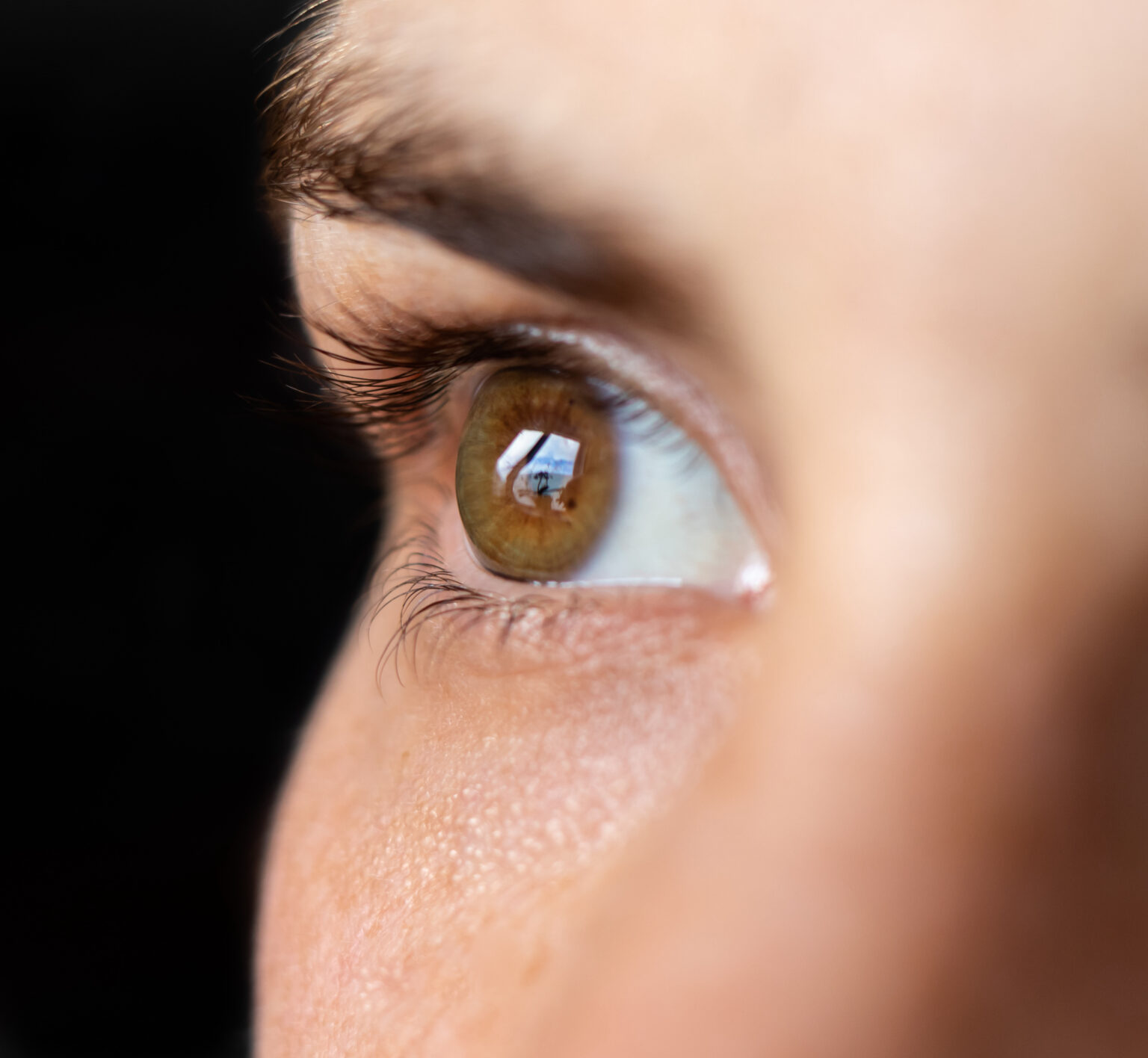
The cornea is a crucial component of the visual system. At Raleigh Ophthalmology, our team understands the vital role the cornea plays in maintaining clear vision and overall eye health.
Our team of expert corneal specialists is dedicated to providing comprehensive care for a wide range of corneal conditions, utilizing the latest advancements in diagnosis and treatment to ensure optimal outcomes for our patients.
The cornea is the clear, dome-shaped surface that covers the front of the eye. It plays a vital role in focusing light to create an image on the retina, accounting for a large amount of the eye’s total focusing power.
The cornea is made up of multiple clear layers of collagen and other cells whose functions are very important to your vision and the overall health of the eye. Two of the most important functions of the cornea are to focus images to the back of the eye onto the retina and to provide protection as a barrier to prevent dust, dirt, bacteria, and other harmful substances from entering the eye.
Corneal specialists are ophthalmologists who have undergone additional training to specialize in diagnosing and treating corneal conditions. These experts are skilled in performing complex procedures such as corneal transplants.
At Raleigh Ophthalmology, our corneal specialists are committed to providing state-of-the-art care for a wide range of corneal conditions, ensuring the best possible vision for our patients.

The cornea can be affected by various conditions that impact its structure and function. Here are some of the most common corneal disorders that our specialists at Raleigh treat:
Dry eye syndrome happens when the eyes don’t produce enough tears or when the tears evaporate too quickly. This can lead to discomfort, irritation, and even vision problems.
While dry eye often involves more than just the cornea, it can significantly impact corneal health and is often managed by corneal specialists.
Fuchs’ dystrophy is a progressive condition affecting the cornea’s innermost layer, the endothelium. It typically begins in middle age and gradually worsens over time.
The main issue in Fuchs’ dystrophy is the loss of endothelial cells, which are important in order for your cornea to stay clear.
Symptoms of Fuchs’ dystrophy include:
As the condition progresses, these symptoms can significantly impact daily activities and quality of life. If Fuchs’ dystrophy becomes advanced enough and vision is significantly affected, surgery may be required in the form of a cornea transplant.
Keratoconus is a progressive condition characterized by the thinning and distortion of the cornea, causing it to bulge into a cone-like shape. This distortion leads to blurry and distorted vision, increased light sensitivity, and difficulty wearing contact lenses.
Specialists do not know the exact cause of keratoconus, but it might be genetic in some cases. It typically begins in the late teens to early twenties and progresses over ten to twenty years.
Symptoms of keratoconus include:
Early diagnosis through routine eye exams is crucial for managing keratoconus effectively. Keratoconus treatment depends on your symptoms.
When your symptoms are mild, your vision can be corrected with glasses. For moderate symptoms, you may need to wear special hard contact lenses to help keep your vision in proper focus.
When symptoms are severe, your ophthalmologist may suggest corneal cross-linking, or a corneal transplant (DMEK). DMEK is an outpatient surgical procedure that replaces all or part of your diseased cornea with healthy donor cornea tissue.
A pterygium is a wedge-shaped growth of tissue that extends from the layer that covers the white part of your eye onto the cornea. While often harmless, a pterygium can cause discomfort, redness, and affect vision if it grows large enough to cover the pupil.
Pterygia are more common in people who spend a lot of time outdoors, especially in sunny climates.
Treatment for corneal conditions varies depending on the specific condition and its severity. At Raleigh Ophthalmology, we offer a range of advanced treatments to address various corneal issues.
Corneal collagen cross-linking (CXL) is a non-invasive treatment that’s often used for keratoconus. While not a cure, cross-linking aims to stop the progression of keratoconus and prevent further vision loss.
The procedure involves applying a solution to the cornea and exposing it to ultraviolet light. This creates new collagen bonds throughout the cornea, strengthening its structure and increasing its resilience.
During a corneal cross-linking treatment session, your eyes will be numbed. The procedure typically takes about sixty to ninety minutes.
Patients may experience some discomfort during recovery, but this can usually be managed with over-the-counter pain relievers and artificial tears.
DSEK is a newer technique that replaces only the damaged inner cell layer of the cornea, rather than its full thickness. This procedure is particularly beneficial for conditions affecting the corneal endothelium, such as Fuchs’ dystrophy.
During DSEK, only the abnormal inner lining of the cornea is removed. A thin disc from a donor cornea is then inserted and positioned using an air bubble.
The procedure takes about forty-five minutes. For patients with Fuchs’ dystrophy, DSEK can be a great option compared to traditional full-thickness transplants since it typically results in faster vision recovery and less discomfort when healing.
For pterygia that causes significant discomfort or interfere with vision, surgery may be necessary. Pterygium removal is typically performed on an outpatient basis and involves carefully removing the growth.
In some cases, a graft may be placed to help prevent the pterygium from coming back again.
In cases of severe corneal disease or injury, a corneal transplant may be necessary. There are several types of corneal transplants, each suited to different conditions.
At Raleigh Ophthalmology, our commitment to providing the best possible care for our patients drives us to stay at the forefront of corneal treatments and technologies. Whether you’re dealing with a common condition like dry eye or a more complex issue requiring advanced surgical intervention, our team of specialists is here to help you achieve and maintain optimal corneal health and vision.